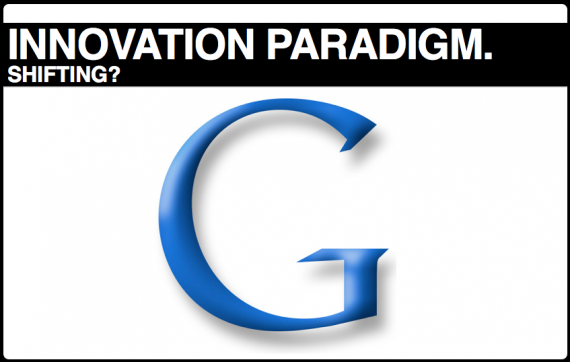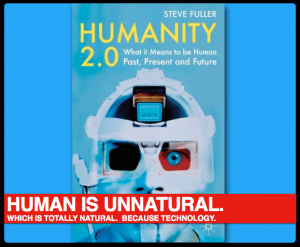 What’s a Google X
What’s a Google X
Well, the company has a special projects division called Google X. And they’ve got robots, artificial intelligence, space elevators, and all kinds of other experimental technologies in the works – here, read about it – it’s super cool. Google is pushing technology harder than probably any other private entity – and word to that. But what this brings to mind is something a bit more interesting: Technological innovation shifting away from governmental entities toward private ventures.
In a recent Nerdist podcast, Dr. Neil deGrasse Tyson, who’s a sort of Carl Sagan for our time (debatable), basically stated that private business will not/cannot seriously push the frontiers of technological development because there’s not enough profit in the unknown.
But, um… What about Xerox PARC? The Google? Virgin Galactic?
Now, to be fair he was talking about projects like going to the moon, Mars, or other bold interstellar travel – so perhaps his statement is indeed a truism specifically for large-scale technological endeavors outside the immediate neighborhood of our planet. Or maybe he means all important new technologies. For example, one could argue that ARPANET, the government-funded primordial internet, directly proves this point. In other words, even the innovative and mighty Google stands on the shoulders of government giants.
Fair enough. In a Way.
But the thinking is problematic because this same line of precedential reasoning can be applied to virtually any technology developed in the entire history of humanity (government-sponsored or otherwise).
Here’s the thing: Everything, everything, everything is a remix – there’s nothing new under the sun – any given technological advancement relies on those that came before – regardless of origin. Tyson is a true science hero of our time, but if he wagers that every great technological advancement has come from government projects, then I’ll have to raise him an Apple and a Microsoft and an IBM and a XEROX and a Ford Motor Company, namsayen?
Privatizing Pure Science
So the hosts of the Nerdist podcast (which I highly recommend) briefly countered Tyson with the facts that Facebook, for example, with it’s 700 million users (now almost a billion), would be the 3rd largest country on earth, and Apple, Inc., has at times more cash on hand than the U.S. government. Tyson dismissed this and reasoned that these companies will only maintain the status quo and push just enough to continue their profitability.
But I don’t know, man. We’re kinda in uncharted territory here. And any entity, public or private, will innovate based on and building upon extant technology – and that’s the essential recursive nature of technology as a force in human society. But private enterprise is increasingly more capable of doing so – and just ask the pharmaceutical industry – at a certain point it IS profitable to push frontiers of technology to address unknown problems! Or Apple – just a few years ago, who would have guess how much we wanted/needed iPads?
Bettering Humanity for Money
There might be a paradigm shift at work here – or, admittedly, wishful thinking is at work. See, we’d like to believe that government-sponsored technological development, occasionally imbued with altruism and a drive toward betterment of the species for its own sake, will continue to move forward as it has for the last several hundred years – but that’s far from guaranteed (see Senatard Tom Coburn of Oklahomo).
Maybe it’s overly optimistic, but for non-governmental profit-driven entities, the dominant paradigm of bottom line over humanity at all costs isn’t necessarily immutable (forgv pun plz). As more large companies, even oil companies, become more and more hip to the idea that a polluted and pillaged earth populated by Road Warriors will be REALLY bad for business, things can and will change.
Our information technologies now allow us to see the self-defeating nature of a strip mining/clear-cutting economy. Large or small, successful companies of the near and distant future will either have to do good things for their customer base, or lose their customer base. It’s certainly feasible that the societal benefits of private companies doing large-scale, pure exploratory science will soon outweigh that of governmental institutions – and yep, even for going to space.
Happiness and Security Through Ad Clicks
To paraphrase Dr. Tyson once again, what drives scientists isn’t what they do know, but what they don’t. Good science approaches new phenomena objectively, so maybe, just maybe – we should give Google the benefit of the doubt.
Private companies can make fatt cash without being evil, right?






